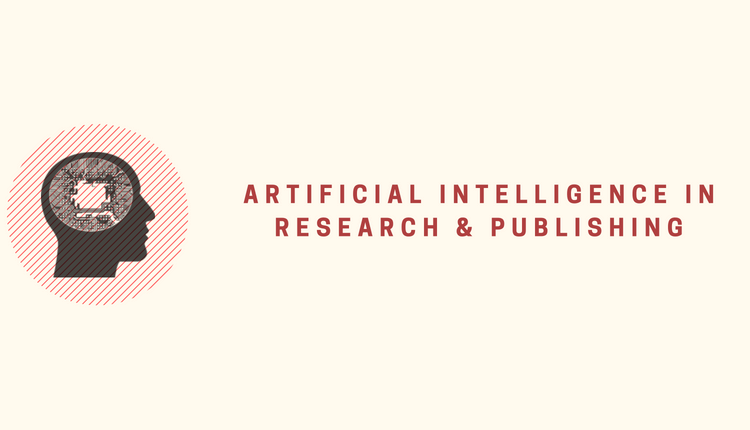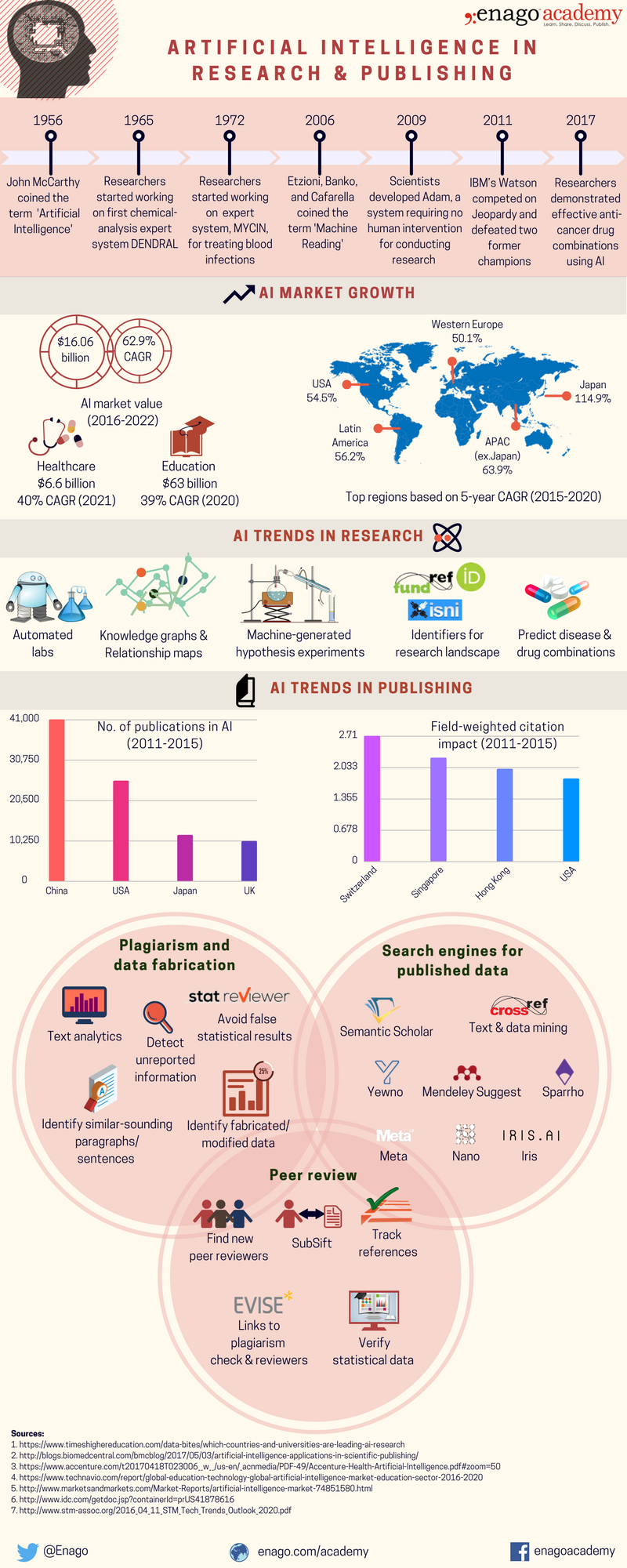Artificial Intelligence in Research and Publishing

The term ”artificial intelligence” was introduced by John McCarthy at a conference at Dartmouth in 1956. Natural language processing, expert systems, neural networks, and robotics are few of the core areas of research related to AI that drive technologies such as information extraction and retrieval, machine translation, and speech recognition.
In the past decade, AI and machine learning have transformed several industries. The disruptive technology of AI is making it easier and faster to automate several processes. In the academic publishing industry, AI-based technologies are being developed and implemented to assist both authors and publishers in tackling issues related to peer review, searching published content, detecting plagiarism, and identifying data fabrication. Thus, AI can not only help expedite scientific communication but also reduce human bias.
Similarly, the application of AI in research has grown tremendously with a focus on automation of research techniques from generating a hypothesis to conducting experiments. In fact, researchers are now being able to address complex problems in biomedical sciences, drug combinations, and predicting diseases using AI.
In this infographic, we discuss the milestones in AI and some of its applications in research and academic publishing. Note that some of the technologies are still under development and only beta versions have been released till date.










The post is really brilliant and the information is very useful for beginners. I’ve read about IBM’s Watson in many articles but none of them gave me as satisfactory description as this did. Learning more with quality over quantity sounds fascinating.